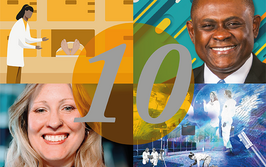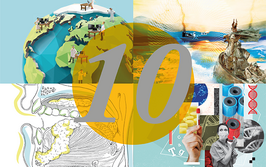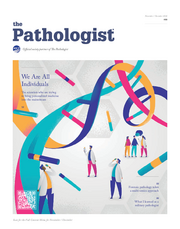Love it or loathe it, social media’s influence in pathology is growing. Increasingly counted among Facebook’s 1.23 billion users and Twitter’s 284 million members, pathologists are starting to recognize how powerful social media can be – not only for raising the public profile of their specialty (something that is desperately needed), but even for career progression. So why are the social media cheerleaders still in the minority?

In spite of the fact that it’s not new, this form of communication is still way out of most pathologists’ comfort zones. Social media expert Bryan Vartebedian thinks it’s time to stop “introducing” scientists to social media and says that, “Repeatedly pitching the terminally skeptical doesn’t work,” (1). As quick as it is to create a digital footprint, though, it’s permanent – which creates fear – and with conflicting advice flying around the Internet, it’s no wonder pathologists are wary.
Take the reaction to a recent article in The Lancet Oncology as an example, which reported that one in seven doctors had accepted Facebook friend requests from patients (2). This spurred The Medical and Dental Defence Union of Scotland to claim that, “doctors who interact with patients on social media risk blurring the boundaries of the professional relationship” (3). They also reported a 74 percent increase in calls from doctors on the subject of social media in 2014 compared with the previous year. Vartabedian’s reaction to the statistics: “Fantastic… expect lots of questions to emerge.” He warns, “Doctors who don’t interact beyond their immediate physical space risk becoming irrelevant” (4).
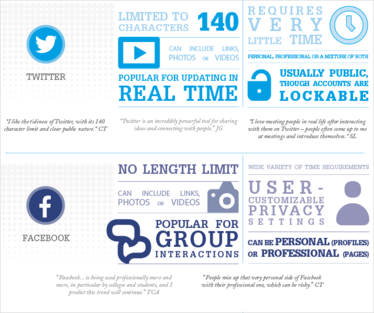
Though “irrelevant” might seem somewhat drastic, if used intelligently, social media can see a person’s or a campaign’s visibility skyrocket overnight. A great example of this is the #hellomynameis campaign, launched by UK doctor and terminally ill cancer patient Kate Granger. Motivated by the fact that very few of the medical staff looking after her actually knew her name, she started a campaign on Twitter. In the months since she started it, it’s gained over 75 million impressions, public endorsements from celebrities, politicians and the monarchy, and hundreds of mentions on local, national and international media. Such is the power of social media. If you’re looking for something a little more low-key though, consider it as a tool to boost your professional credibility. Not convinced it can? One recent study looked at the social media use of the most highly-cited US nanoscientists and found that public engagement actually boosted the scientific influence of their research (5). “There is a normative assumption among scientists that communication efforts outside the ivory tower are not valuable to their academic careers. We found that interaction with journalists and social media can make scientists more visible and their work cited more often,” says lead author Xuan Liang.
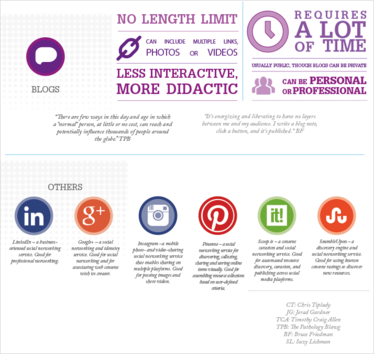
Confused about which way to go? It’s hardly surprising. Social media engagement is not without risk, but with a bit of know-how and a dash of common sense, this mighty force could see your profile achieve international status. But don’t just take my word for it, read the real life examples that follow and decide for yourself if you want to #goforit!
We spoke with the pathologists already utilizing and exploring social media, to find out more:
The Social Pathologist, by Jerad M Gardner
Social Media is Our Force Multiplier, by Timothy Craig Allen
The Controversial Blogger, by Bruce Friedman
Case Study: Libre Pathology, by founder and owner Michael Bonert
Case Study: Team Haem, by founder Chris Tiplady
The Presidential Advocate by RCPath President Suzy Lishman
Ten Simple Rules for Doctors on Social Media, by John Mandrola
- B Vartabedian, “Social media has been introduced to physicians,” 33 charts, January 24, 2014, bit.ly/1vpRc3W
- L Fallowfield et al., “Blurring of boundaries in the doctor–patient relationship,” Lancet Oncol, 15, 1423–1424 (2014). PMID: 25456361.
- MDDUS, “MDDUS report steep rise in social media calls,” December 17, 2014. bit.ly/1zzXHSn
- B Vartabedian, “Scottish physicians and fear-based information,” 33 charts, January 7, 2014, bit.ly/1vpTIY2
- X Liang et al., “Building buzz (scientists) communicating science in new media environments,” Journ Mass Comm Quarterly, 91, 772–791 (2014).

After graduating with a pharmacology degree, I began my career in scientific publishing and communications. Now with more than 16 years of experience in this field, my career has seen me heading up editorial and writing teams at Datamonitor, Advanstar and KnowledgePoint360 group. My past experiences have taught me something very important – that you have to enjoy working with, and have respect for your colleagues. It’s this that drew me to Texere where I now work with old colleagues and new. Though we are a hugely diverse team, we share several things in common – a real desire to work hard to succeed, to be the best at what we do, never to settle for second best, and to have fun while we do it. I am now honored to serve as Editor of The Pathologist and Editorial Director of Texere Publishing.

While obtaining degrees in biology from the University of Alberta and biochemistry from Penn State College of Medicine, I worked as a freelance science and medical writer. I was able to hone my skills in research, presentation and scientific writing by assembling grants and journal articles, speaking at international conferences, and consulting on topics ranging from medical education to comic book science. As much as I’ve enjoyed designing new bacteria and plausible superheroes, though, I’m more pleased than ever to be at Texere, using my writing and editing skills to create great content for a professional audience.



